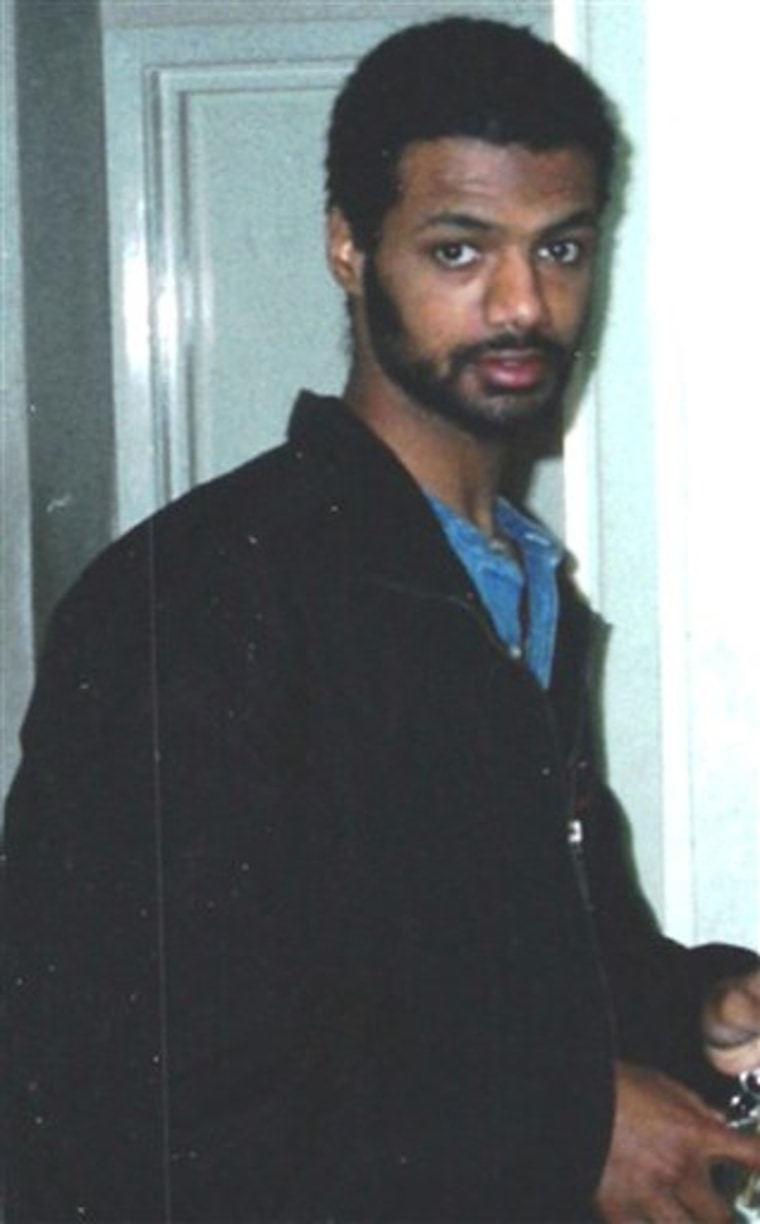A former U.K. resident who alleges he was tortured while in U.S. custody will soon be released from Guantanamo Bay and sent back to Britain, authorities said Friday.
Binyam Mohamed — accused by U.S. authorities of conspiring to take part in a dirty bomb plot and training in al-Qaida camps — was kept at the military prison camp even though charges against him were dropped in October.
The announcement of his release had been widely anticipated after President Barack Obama took office pledging to close Guantanamo and return as many detainees as possible to their home countries. Britain's foreign secretary, David Miliband, has been lobbying for Mohamed's return to Britain since 2007.
Three other men with ties to Britain — Jordanian Jamil el-Banna, Libyan-born Omar Deghayes and Algerian Abdennour Sameur — were returned from Guantanamo in December 2007.
At the time, the U.S. cited "additional security concerns" for its refusal to return Mohamed and another former U.K. resident, Saudi-born Shaker Aamer.
Aamer remains at Guantanamo Bay, and British authorities have said they are not actively seeking his return. The U.S. has accused him of having links to al-Qaida, but he denies the allegations and has not been charged.
It was not immediately clear when exactly Mohamed, 30, would be back in Britain. He had been on hunger strike for more than a month to protest his detention, but Britain's Foreign Office said a British doctor had examined him and found him medically fit to travel.
U.S. Navy Cmdr. Jeffrey Gordon, a Pentagon spokesman, said that as a matter of policy the military does not comment on transfers from Guantanamo until they are completed.
Claims of torture
Mohamed, an Ethiopian refugee who moved to Britain when he was 15, was arrested in Pakistan on a visa violation and turned over to his American authorities, according to human rights group Reprieve.
Mohamed alleges he was beaten in Pakistan and tortured in Morocco and Afghanistan before being moved to the U.S. facility in Cuba in September 2004. Washington has never publicly acknowledged extraordinary renditions to places such as Morocco and still refuses to say where Mohamed was before he was taken to Guantanamo.
His case caused concern in Britain when it was disclosed that Mohamed had been interviewed by British intelligence before his transfer to Guantanamo. Mohamed's lawyers allege that intelligence had evidence that he was being mistreated, but British Prime Minister Gordon Brown has insisted that U.K. always acted lawfully, telling reporters last week there had been "no cover up whatsoever" in the case.
Mohamed's lawyer military lawyer, Air Force Lt. Col. Yvonne Bradley, said she was pleased Mohamed's long detention was coming to an end.
"It's been a very long time," Bradley said. "We're all happy he's finally being released and we've been able to get him back." She said Mohamed's health will be monitored on the flight back from Cuba.
Allegations of cover-up
The Foreign Office said Mohamed would be returned to the U.K. "as soon as the practical arrangements can be made," but added that does not mean he can stay in the country indefinitely.
"His immigration status will be reviewed following his return and the same security considerations will apply to him as would apply to any other foreign national in this country," the Foreign Office said.
Reprieve, the human rights group, said his legal residency in the U.K. expired because he was prevented from renewing it while being detained.
Amnesty International also welcomed news of the release, but said the U.K. needed "a proper independent inquiry into Binyam's case and allegations of a cover-up of torture."
Britain's attorney general, Baroness Patricia Scotland, began an inquiry into her country's handling of Mohamed's case in October but has yet to deliver a report.
